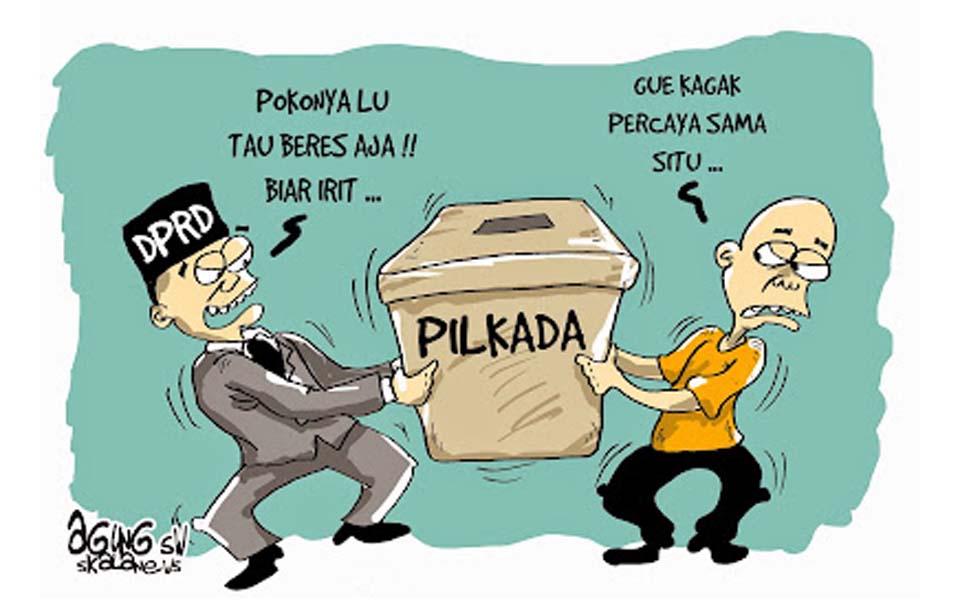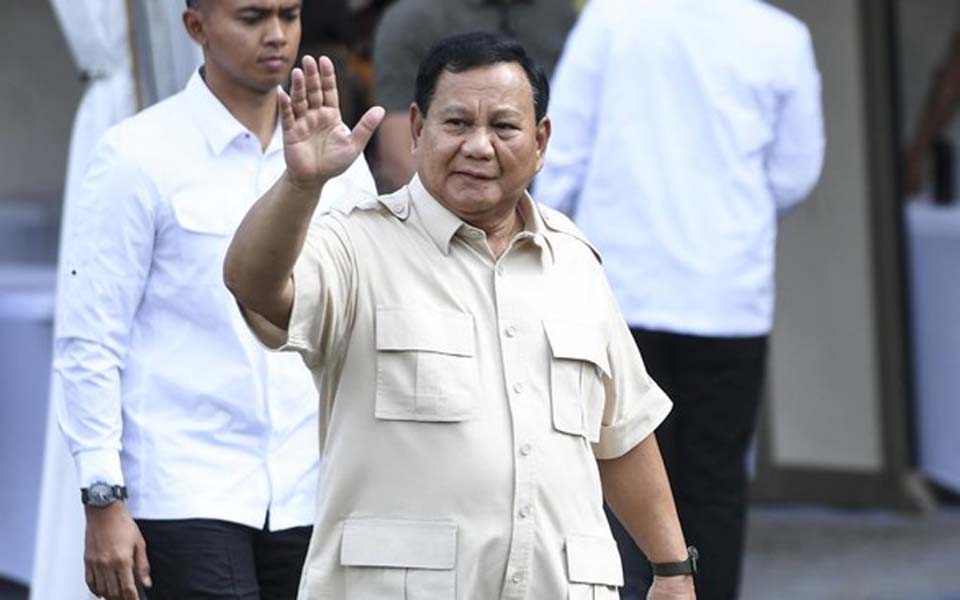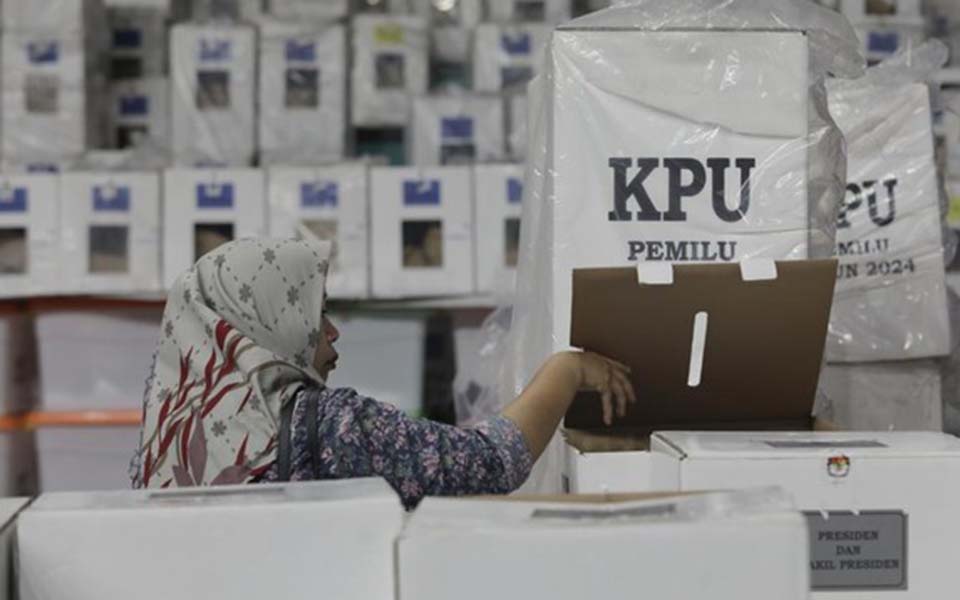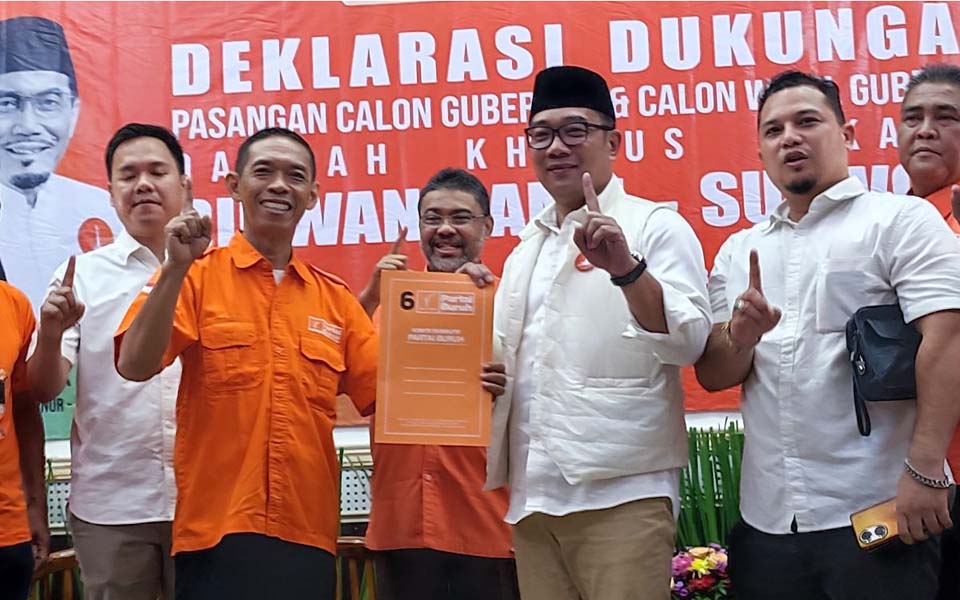Jakarta – President Prabowo Subianto's proposal to restore the indirect election of regional heads (Pilkada) through Regional House of Representatives (DPRD) is not really a solution to the high political costs of elections.
The proposal is seen as only moving the problems faced by society from the public arena to a more private arena behind the walls of the regional legislatures. Meanwhile the root of the problem of high political costs, which is seen as originating from the internal dynamics of the political parties, is left untouched.
"We seem to only be moving the problem from the public arena into the closed arena of the DPRD", said election observer and University of Indonesia Faculty of Social and Political Science (FISIP) lecturer Titi Anggraini on Monday December 16.
Prabowo initiated the discourse by proposing that regional heads be elected through the DPRD during a speech at the 60th Anniversary of Golkar Party in Sentul, Bogor, on Thursday December 12. Prabowo cited the cost of elections in neighbouring countries which he said was much cheaper.
"I see that our neighbouring countries are efficient, Malaysia, Singapore, India, vote once for DPRD members, vote once, yes, after this it's the DPRD that chooses the governor, chooses the regent", Prabowo said the speech.
Prabowo believes that elections through the DPRD can push down the budget that has to be paid for by the state so the money allocated for elections can later be used for other things that are more important for society.
"Efficient, not spending money like we're rich, money that can feed our children, money that can improve schools, can improve irrigation", said Prabowo.
"There are actually so many political parties here. Actually we could decide this tonight, how about it?", he added.
Won't end money politics
Titi Anggraini meanwhile has warned that the change in the election system from indirect to direct elections to 2004 as it is today was originally a reaction to the rampant practice of money politics. Law Number 32/2004 on Regional Autonomy was motivated by an attempt to address the practice of buying and selling seats by DPRD members for the election of regional heads (candidacy buying).
Regional head elections through the DPRD may well be able to reduce the costs incurred by the state. However, she said, it will not necessarily erase the practice of money politics and the high cost of politics in the election process.
"Because the root of the problem is poor law enforcement and internal democracy within the [political] parties that has never really been fixed or improved", said Anggraini.
Mulawarman University constitutional law expert Herdiansyah Hamzah believes that Prabowo's proposal reflects a desire to amputate public participation. According to Hamzah, not all aspects of public participation should be represented by the DPRD as the representatives of the people.
At the moment, said Castro, as he is known by his friends, it is not easy to fully trust in the representatives of the people in parliament. Legislative members after all also have lots of problems, especially with regard to the power of the oligarchy, the problem of which originates from with the political parties.
"How then could the public entrust their votes to them?", Castro asked said when contacted on Monday December 16.
Castro believes that indirect elections through the DPRD would only cause the process to shift into the dark rooms of power, and he doubts it would be run fairly.
"Yes, it can be likened to corruption, even if the election process is carried out in the dark rooms of the DPRD, who is monitoring this, who ensures that the process will take place fairly and that promises are kept, it won't happen", Castro said.
Government testing the waters
Meanwhile, Indonesian Survey Current (ASI) Executive Director Ali Rif'an believes that the government is currently testing the waters and wants see the public's response to the issue. He believes that the proposal will only really be executed if the public's response is minimal or sounds positive.
Rif'an however took note of the countries used as an example by Prabowo. According to Rif'an, the three countries, Singapore, India and Malaysia use a parliamentary system whose executive government is chosen by the legislature.
So, said Rif'an, Prabowo cannot simply equate Indonesia with these three countries because Indonesia adheres to a presidential system. "So it is not compatible with our presidential system", he said on Monday.
Rif'an is also worried that the idea will widen and not just be applied to the election of regional heads, but also to the executive at the central level such as the president and vice president.
But irrespective of this, the discourse on indirect elections or through the DPRD does need an in-depth study, especially if it is only based on concerns over money politics.
"What is the basis of the argument so the solution to Pilkada that are messy and chaotic is that it be immediately replaced with [elections] via the DPRD. If let's say the reason is money politics, if the Pilkada is done via the DPRD is it certain there will be no money politics", he said.
Finally, Rif'an stressed that under a presidential system, the executive has a strong legitimacy because it is chosen by the people. Therefore, it is not easy for a president or a regional head to be brought down by the national House of Representatives (DPR) or DPRD. (thr/ugo)
[Translated by James Balowski. The original title of the article was "Ruang Gelap Pemilihan Kepala Daerah Lewat DPRD".]















